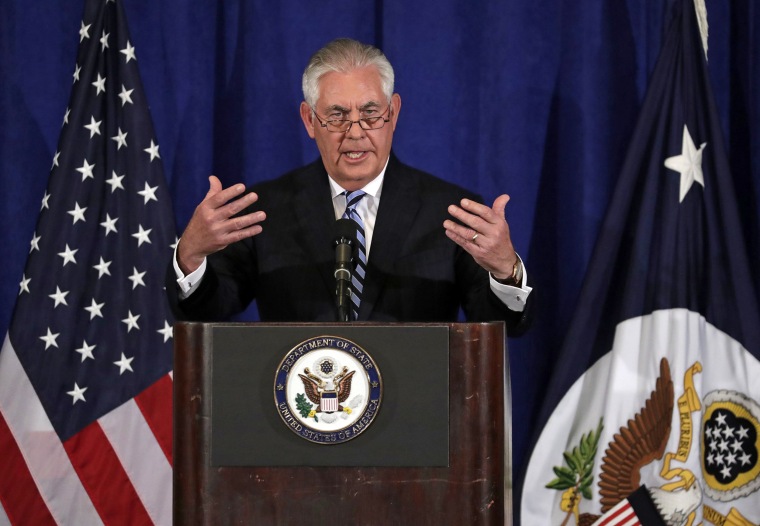PARIS — The United States is pulling out of UNESCO because of what Washington sees as its anti-Israel bias and the need for "fundamental reform" of the U.N. cultural agency, the State Department said.
In a statement, the State Department said it notified UNESCO's director, Irina Bokova, on Thursday of the decision. The U.S. will seek to have a "permanent observer" status instead, and the withdrawal will take effect Dec. 31, 2018.
While the U.S. stopped funding UNESCO after it voted to include Palestine as a member in 2011, the State Department has maintained a UNESCO office at its Paris headquarters and sought to weigh in on policy behind the scenes.
UNESCO expressed "profound regret" over the U.S. plan to leave the agency.
The departure is a loss for "the United Nations family" and for multilateralism, Bokova said in a statement. She said the U.S. and UNESCO matter to each other now more than ever because "the rise of violent extremism and terrorism calls for new long-term responses for peace and security."
The decision comes as the U.N. Educational, Scientific and Cultural Organization is voting to choose a new director this week, in tense balloting overshadowed by the agency's funding troubles and divisions over Palestinian membership.
U.S. officials said that Secretary of State Rex Tillerson made the decision and that it was not discussed with other countries but was an internal U.S. government deliberation.
The officials, who were not authorized to be publicly named discussing the issue, said U.S. is notably angry over UNESCO resolutions denying Jewish connections to holy sites and references to Israel as an occupying power.
Many saw the vote to include Palestine as evidence of long-running, ingrained anti-Israel bias within the United Nations, where Israel and its allies are far outnumbered by Arab countries and their supporters.
UNESCO is best known for its World Heritage program to protect cultural sites and traditions around the world. The agency also works to improve education for girls in desperately poor countries and in scientific fields, to promote better understanding of the horrors of the Holocaust and to defend media freedom, among other activities.
The Trump administration has been preparing for a likely withdrawal for months, and a decision was expected before the end of the year, according to U.S. officials. Several diplomats who were to have been posted to the mission this summer were told that their positions were on hold and advised to seek other jobs.
In addition, the Trump administration's proposed budget for the next fiscal year contains no provision for the possibility that UNESCO funding restrictions might be lifted.
The lack of staffing and funding plans for UNESCO by the U.S. have been accompanied by repeated denunciations of UNESCO by senior U.S. officials, including U.S. Ambassador to the United Nations Nikki Haley.
The U.S. pulled out of UNESCO in the 1980s because Washington viewed it as mismanaged and used for political reasons, then rejoined in 2003.
